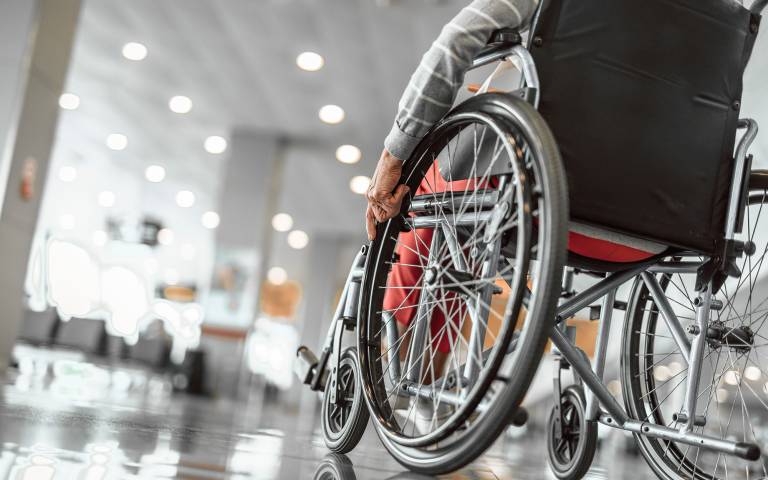Pioneering research aims to improve bowel function after injury
22 January 2024

Thousands of people paralysed after a spinal cord injury could benefit from major new UK research which brings together a coalition of charities, hospitals and university researchers.
The potentially life-changing ImPRESS project at the London Spinal Injuries Centre (LSIC) will look at whether spinal cord stimulation technology can help recover bowel function.
Every four hours someone in the UK is paralysed after a spinal cord injury with around 60,000 people living daily with the devastating consequences. This includes the loss of bladder, bowel and sexual functions which have a huge impact on quality of life, health and dignity.
Spinal Research, the UK’s leading charity funding world-class medical research into restoring movement and function following a spinal cord injury, is driving clinical pilots in this area. Funding has already been channelled into a collaborative study between the LSIC and University College London looking at the potential of non-invasive spinal cord stimulation to restore bladder function.
Thanks to a targeted donation of £300,000, from Spinal Research partners the Injured Jockeys Fund, the collaborative study between the LSIC and UCL, led by UCL Associate Professor, Lynsey Duffell and Lt Col David Baxter, Consultant Neurosurgeon and Spinal Surgeon at the Royal National Orthopaedic Hospital, Stanmore, will now focus on the use of implantable spinal stimulation technology to restore bowel function.
Recruitment for the ground-breaking trial starts this summer. The stimulation technology will initially be trialled in the hospital with participants who respond well being offered a fully implantable epidural stimulator for use at home alongside a programme of pelvic floor muscle training.
Read more about the project on Spinal-Reaserch.org
 Close
Close

